A Career in the Heating Ventilation Air Conditioning and Refrigeration (HVACR) Industry
- 13th June 2019
- News
As in many industries the Heating, Ventilation, Air Conditioning (HVAC) and Refrigeration industry suffers from a marketplace skills shortage resulting in a shortage of applicants for Refrigeration and HVAC engineer positions.
Gary Piper, Synecore’s Mechanical Director explains: “Air conditioning and refrigeration doesn’t seem to be a trade widely considered by young people when joining the construction industry. I for one fell into the industry, having known someone else who did it. It’s not like plumbers, carpenters and builders, which are renowned jobs in construction, this is a relatively new trade and there is a distinct lack of courses available, so yes there is a skills shortage. Consequently, it can be very difficult to find the right applicant for AC engineering positions with the right attitude.
Now is the time to start encouraging the next generation to consider professions in construction, particularly the HVACR industry. I think schools could do more to educate young people about the various jobs, available in the construction industry and include AC and refrigeration.”
What Is An HVAC and Refrigeration Engineer and What Do They Do?
The word engineer (Latin ingeniator) is derived from the Latin words ingeniare (“to create, generate, contrive, devise“) and ingenium (“cleverness“). Engineers invent, design, analyze, build, and test machines, systems, structures and materials to fulfil objectives and requirements while considering the limitations imposed by practicality, regulation, safety, and cost.
An HVACR service engineer carries out a variety of tasks including: the design, installation, maintenance, and repair of heating, ventilation, air conditioning, cooling, and refrigeration systems in buildings like restaurants, offices, schools and hospitals etc.
Some typical day-to-day activities may involve:
- Working on air conditioning systems from splits through to VRF systems including:
- surveying sites where cooling systems are to be fitted
- planning the layout of pipework, ducts and control panels
- installing components
- carrying out quality checks to make sure systems are working properly and safely
- carrying out scheduled maintenance including cleaning, testing and servicing
- finding and fixing faults
- Working on commercial refrigeration systems including refrigeration cabinets, walk in cold rooms, walk in freezers, ice machines, blast chillers, and cellar cooling etc. including:
- site surveys
- recommendation on the frequency of your commercial refrigeration maintenance visits
- planning and carrying out scheduled health checks, maintenance and repairs.
- Safe handling of F-Gas or refrigerants.
- Advising customers on ways to reduce their energy use.
You can also read more about some of the tasks involved in a Synecore air conditioning Planned Preventative Maintenance (PPM) visit that our HVACR engineers carry out.
Skills A Refrigeration and HVAC Engineer Requires
HVAC and Refrigeration engineer’s jobs need to have a variety of skills apart from their technical, numeracy and analytics abilities. These include:
Attention to detail
Attention to detail is vital given the type of work an HVAC and Refrigeration engineer will carry out e.g. handing of F-Gases or refrigerants. HVAC engineers need to be thorough and accurate when they are working. Even minor mistakes can have major consequences.
Problem solving
The very nature of an HVAC and Refrigeration engineer’s role is to problem solve using their technical knowledge. An engineer needs to be able to think critically about the systems they are servicing and maintaining. They need to be able to visualise the system in its individual parts and as a whole to be able to narrow down where problems are occurring and to go onto find solutions.
Documenting work
A vital part of the role is keeping good records of the work that has been completed and what servicing and repairs have been carried out. This is especially true when it comes to ensuring customers are F-Gas compliant which is a legal obligation for any business that operates an air conditioning system with a CO2 equivalent charge of 5 tonnes or more.
Communication skills
HVAC and Refrigeration engineers need to be able to communicate effectively with both customers to apprise them of the work being carried out to the air conditioning or refrigeration systems and any faults that arise. They also need to be able to communicate with their work colleagues to ensure that projects are completed successfully.
Interested in becoming a Refrigeration and HVAC Engineer?
Having read the details above on what an HVACR engineer is and does you may be interested in finding out more about this career. If that’s the case then there are two main paths to becoming an HVACR engineer. They are through:
A City and Guilds course
Refrigeration and Air Conditioning (6187) which focusses on the practical skills and knowledge required to install, service and maintain refrigeration and air-conditioning systems, on successful completion of this qualification the learner will be well equipped to start or progress their career in the refrigeration & air-conditioning industry.
The National Careers Service website lists two courses In England.
North Kent College also lists a Refrigeration and Air Conditioning course.
An Apprenticeship
Apprenticeships are also listed on the National Careers Service website and the site also allows you to find an apprenticeship near you.
Given the lack of young people coming training to be air conditioning and refrigeration engineers and to try to overcome the shortage of suitable applicants Synecore has a number of HVACR apprenticeships.
Synecore’s Mechanical Director, Gary Piper says: “We do encourage apprenticeship schemes. This way we produce a better-quality engineer, who has the right skills and work ethic. Currently we have eight air conditioning apprentices within Synecore’s Primary Service Team.
The apparent skills shortage in HVACR highlights how the construction industry should be doing more to promote mechanical engineering. It is a very rewarding and well-paid profession that doesn’t necessarily rely upon other trades before the installation process, as we can do everything ourselves. Certainly, it is a profession that more young people should be made aware of.”
An interesting fact: Adrian Eade one of the co-founders of Synecore progressed through the industry starting as an apprentice then becoming foreman and contracts manager and Gary Piper, the Mechanical Director at Synecore, spent time working as an apprentice, engineer, project manager and sales manager.
Synecore
Synecore provide air conditioning and refrigeration installation, service and maintenance to commercial and industrial clients throughout Kent, London and the UK. Contact us today to discuss your requirements and to arrange your free no obligation quote.
Subscribe to our newsletter!
Contact us
0845 241 4953
sales@synecore.co.uk
Archives
- January 2024
- December 2023
- November 2023
- October 2023
- September 2023
- August 2023
- July 2023
- June 2023
- May 2023
- April 2023
- March 2023
- February 2023
- January 2023
- December 2022
- November 2022
- October 2022
- September 2022
- August 2022
- July 2022
- June 2022
- May 2022
- April 2022
- March 2022
- February 2022
- January 2022
- December 2021
- November 2021
- October 2021
- September 2021
- August 2021
- July 2021
- June 2021
- May 2021
- April 2021
- March 2021
- February 2021
- January 2021
- December 2020
- November 2020
- October 2020
- September 2020
- August 2020
- July 2020
- June 2020
- May 2020
- April 2020
- March 2020
- February 2020
- January 2020
- December 2019
- October 2019
- September 2019
- August 2019
- July 2019
- June 2019
- May 2019
- April 2019
- March 2019
- February 2019
- November 2018
- October 2018
- September 2018
- August 2018
- July 2018
- May 2018
- April 2018
- March 2018
- February 2018
- January 2018
- December 2017
- October 2017
- August 2017
- June 2017
- April 2017
- March 2017
- February 2017
- January 2017
- December 2016
- November 2016
- October 2016
- September 2016
- August 2016
- July 2016
- May 2016
- April 2016
- March 2016
- February 2016
- January 2016
- December 2015
- November 2015
- October 2015
- September 2015
- July 2015
- June 2015
- May 2015
- April 2015
- September 2014
- August 2014
- July 2014
- June 2014
- April 2014
- March 2014
- February 2014
- January 2014
- December 2013
- November 2013
- September 2013
- August 2013
- July 2013
- June 2013
- April 2013
- March 2013
- February 2013
- January 2013
- December 2012
- November 2012
- October 2012
- September 2012
- August 2012
- July 2012
- June 2012
- May 2012
- April 2012
- March 2012
- February 2012
- January 2012
- December 2011
- November 2011
- October 2011
- September 2011
- August 2011
- July 2011
- June 2011
- May 2011
- April 2011
- March 2011
- February 2011
- January 2011
- December 2010
- September 2010
- July 2010
- June 2010





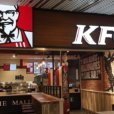




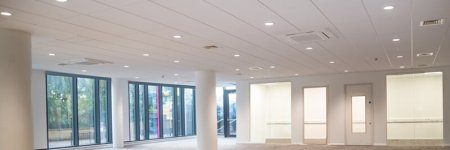




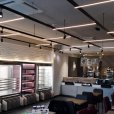











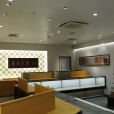



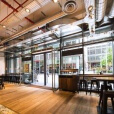

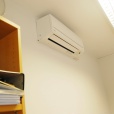


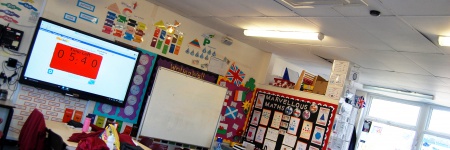
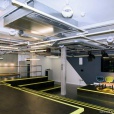
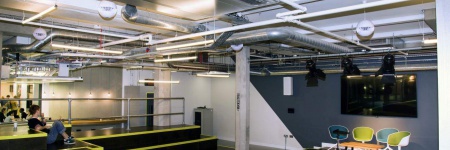


Recent Comments